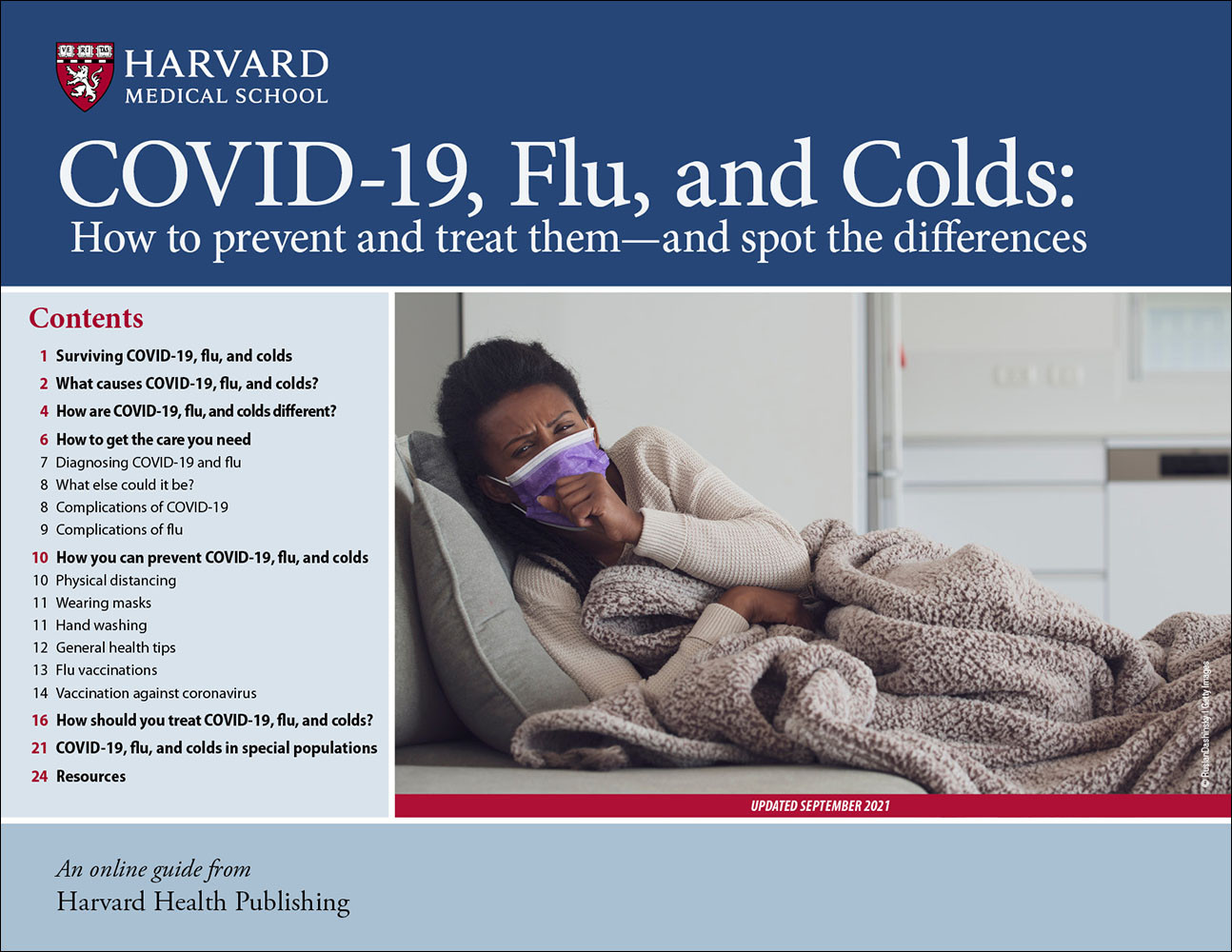Are your shots up to date?
Adults need vaccines too. It may be time to check to see if you've gotten all the shots that are recommended for your age group.
 COVID-19 vaccines have gotten a lot of attention lately. (Did you get yours yet?) But a COVID vaccine isn't the only one that adults need. There are a number of others that you should also check off your list.
COVID-19 vaccines have gotten a lot of attention lately. (Did you get yours yet?) But a COVID vaccine isn't the only one that adults need. There are a number of others that you should also check off your list.
"Over all, vaccines are an important way to maintain your health and stay illness-free. They are one of the most essential preventive measures that we all have available to us," says Dr. Elisa Choi, a Harvard-affiliated internal medicine and infectious disease specialist. "Vaccines are truly lifesavers. So don't overlook an opportunity to receive your recommended vaccinations, to keep yourself as healthy as possible."
We asked Dr. Choi which shots should be on your list and what else you should know about them. Below are her responses.
Q. What vaccines are recommended for adults?
A. In addition to a COVID-19 vaccine, which is recommended for all adults, including pregnant women, adults should get an annual influenza vaccine. Those over age 65 should also receive a vaccine against pneumococcal disease, called Pneumovax. Another pneumococcal vaccine, called Prevnar, is for younger adults who have certain health conditions and can also be given to people ages 65 and older, after consultation with a physician. You may need to get both types of pneumococcal vaccinations depending on your doctor's recommendation.
The shingles vaccination, which is called Shingrix and comes in two doses, is recommended for adults ages 50 and older. A tetanus booster — either Td or Tdap — is recommended every 10 years.
If you are age 45 or younger, your doctor may also recommend an HPV [human papillomavirus] vaccine.
Q. Should people consider any additional vaccines if they have special circumstances — for instance, traveling outside the country, caring for someone who is immunocompromised, or having a new grandchild?
A. Depending on a person's underlying medical conditions and other factors, including past or future travel history, other adult vaccinations might include hepatitis A, hepatitis B, MMR [measles, mumps, rubella], Hib [Haemophilus influenzae type B], meningococcal ACWY, meningococcal B, or varicella vaccines.
Travelers may need certain vaccinations depending on the destination country and planned activities. These might include hepatitis A, hepatitis B, rabies, MMR, meningococcal ACWY, meningococcal B, or less commonly known vaccines such as typhoid vaccine and Japanese encephalitis vaccine. The yellow fever vaccine may also be needed or required, depending on your travel destination. If you are traveling, consider making an appointment in a travel clinic ahead of time, to make sure you receive the necessary vaccines.
If you regularly interact with a severely immunocompromised person in your household, talk to your doctor about whether you should avoid live vaccines yourself. Nasal influenza vaccine, or Flumist, is one example; other live vaccines are the MMR, yellow fever, and varicella vaccines.
People who are household contacts of newborns should receive a Tdap booster if they are due for it, preferably before contact with the newborn. The "ap" in the name Tdap refers to protection against pertussis [whooping cough]. If all adults who are around a newborn are vaccinated, they can help protect the newborn, who is too young to be vaccinated, from whooping cough.
Q. How can someone find a record of the immunizations they have had?
A. Adults can sometimes retrieve prior vaccination records from their former pediatrician's office. Pediatricians keep very comprehensive records. Other sources of vaccination records are student health services from undergraduate or graduate schools one has attended, or from a travel clinic where you received vaccinations prior to a trip. Travel clinics also keep good immunization records for patients seen there. Getting, and then maintaining, your immunization records will help your primary care physician determine which vaccines you will need.
Q. How can someone catch up on vaccines if they are missing some?
A. There is no limit on the number of vaccines you can receive at once. Some people prefer to separate shots due to concerns about local reactions. But you can get them together, and it is generally recommended that all needed vaccines be administered during an office visit. A few specific vaccines should not be administered together, so be sure to check with your physician.
Are you up to date?Vaccines can prevent serious or fatal illness or infections and certain cancers. "Vaccines are achievements of modern medicine, and with vaccinations, overall life expectancy has increased significantly as compared to the pre-vaccine era," says Dr. Elisa Choi, an internal medicine and infectious disease specialist. Check to see if you've got all your needed vaccinations by going to the CDC website at www.cdc.gov/vaccines/adults/rec-vac/index.html. |
Image: © Nadzeya_Dzivakova/Getty Images
About the Author

Kelly Bilodeau, Former Executive Editor, Harvard Women's Health Watch
Disclaimer:
As a service to our readers, Harvard Health Publishing provides access to our library of archived content. Please note the date of last review or update on all articles.
No content on this site, regardless of date, should ever be used as a substitute for direct medical advice from your doctor or other qualified clinician.
















